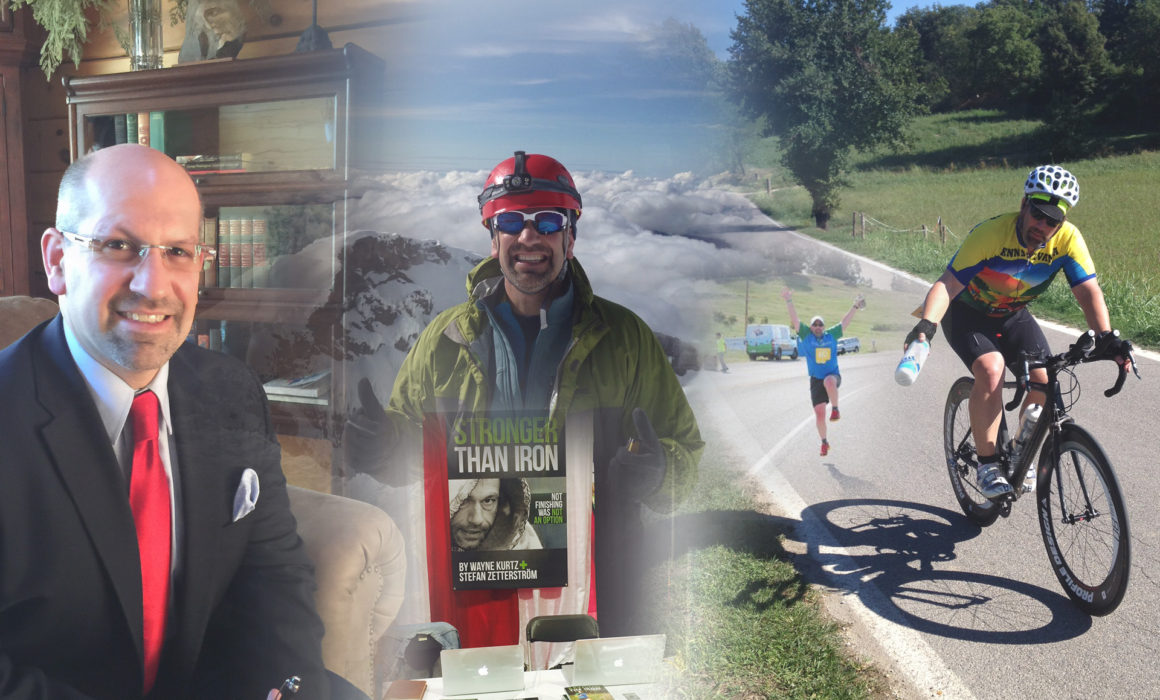Sleep Deprivation for the DECA or multi day race – You Don’t Need as Much as You Think
Sleep deprivation and staying in the “safe-zone” is always a concern with athletes completing in long multi-day (5+ days and longer) events. How often do we hear that it’s a fine line – if you go to far into a sleep deprived state, its very difficult to recover and keep pushing throughout the race before a meltdown.

There are endurance races which immediately trigger thoughts of the struggle with sleep deprivation – Race Across America Bike Race (RAAM) and very long adventure races – (Raid Gauloises & Eco Challenge). The documentaries and movies of these races always highlight the effects of not getting adequate REM sleep. Some is drama for the viewing audience, but sleep deprivation can be a major hurdle during these events and learning how to manage it. When I first heard of the RAAM riders at the front of the pack averaging 1,5 hours average sleep per day (to make the 12 day cutoff most riders will sleep less than 4 hours a day) it was unfathomable. I wondered if it was possible to train for a sleep deprived state to simulate the race. To a certain degree it can be a learned skill to reduce the sleep hours.
Clearly, severe sleep deprivation will reduce glycogen stores, increase stress levels as cortisol declines, increasibg buildup of ATP, it becomes difficult to react quickly and may causes performance declines. However, when looking at your sleep plan don’t let it influence your every move in a race and rush to sleep when you are feeling fine.
As an experiment for this year’s Mexico continuous DECA, I disrupted my old sleep plan schedule that I used in 2009. During the 2009 race, I slept 4.5 to 5 hours a day. Since it was my first continuous DECA, I had no idea on what to expect with regards to severe sleep deprivation. This year was going to be completely different as I had some experience and of course adaptability to adjust the plan if necessary.
After preparing a very concise race plan on a few small laminated index cards, I had an estimate of the total amount of sleep per day goal – it was significantly less than 2009. On average, the target was 2 hours max sleep at any one time and reducing the overall day average by 50% compare to the first DECA. Keep in mind, I had no idea on how exactly the body would respond to this massive disruption of sleep hours per day.
 The late great Jurie Robic – dominating RAAM and sleep master.
The late great Jurie Robic – dominating RAAM and sleep master.
Two DECA Sleep Race strategies that worked – consider these for your plan:
1. Immediately following the long 24 mile swim, no matter how bad the shoulders felt and overall tiredness, I would do a quick transition and immediately bike several laps of the course before sleeping. This one simple item provided a massive mental boost as many decided not to ride. It just felt so great to be out of the water along with knowing it would be tough to sleep anyway after the long swim. The adrenaline kicked in and felt like a new person being out of the water. I was never sleepy during this early riding.
2. All sleeping during the bike would be very short. Because of the Mexico heat, the plan was to ride all night and most of the day without long sleeps. As mentioned earlier my sleeps were on average 2:00-2:30 hours max. This was risky you might be thinking, what happens if you start falling asleep on the bike and crash. It was a concern in the back of my mind, but to my surprise I was alert the entire time on the bike, When I felt drowsy a bit of coffee worked to get me back on track. Now the run, a completely different story – sleep deprivation caught up to me at the end. The last 1/2 marathon I can’t remember much of it as I was crawling and stumbling at 40+ minutes a mile!
The most important point is that everyone reacts differently to sleep deprivation in a long endurance race. However, we have all been beat over the head again and again by “experts” of the importance of managing “adequate” sleep in a race. My guess is that for many athletes, they can go on much less while maintaining pace as I experienced in Mexico.
Build a sleep plan for your next multi day race and stretch your boundaries of what is possible. Not sure about you, but getting to the finish line a quick as possible is an underlying goal, and one way to achieve it is to test sleeping less. It works! Need a signed copy of the new book? It’s All About the DECA, message me at https://www.wayne-kurtz.com/get-in-touch/

